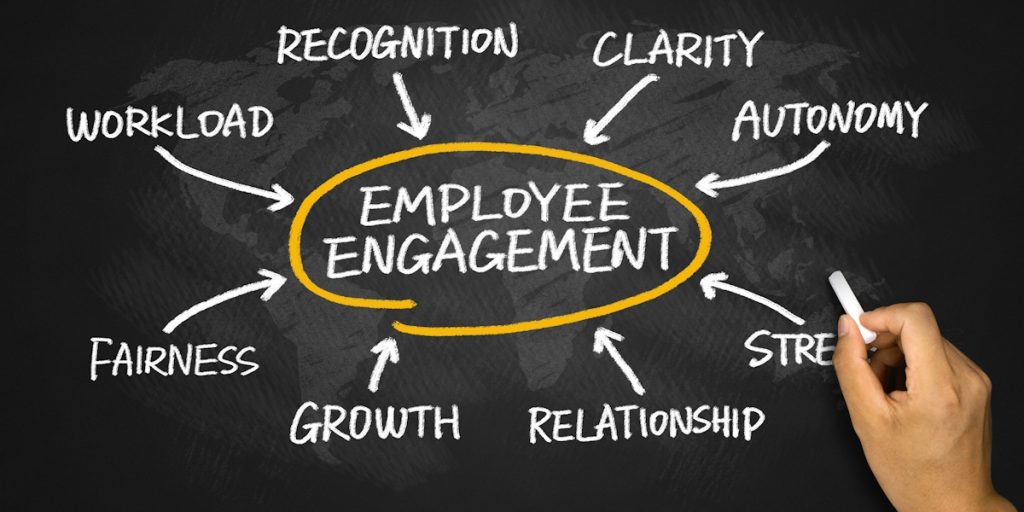Employee resignations can be costly, disruptive, and leave businesses struggling to fill the gaps left behind. But what if you could make your business “resignation-proof”? While no company is completely immune to turnover, there are actionable steps you can take to create an environment where employees feel valued, engaged, and unlikely to leave.
In this blog, we’ll explore how to foster a work culture that encourages employee loyalty, reduces turnover, and strengthens your team for the long run.
1. Build a Positive Company Culture
A thriving company culture is the backbone of employee retention. When employees feel they’re part of a supportive, engaging environment, they’re far more likely to stay.
1.1. Promote Open Communication
Encourage transparency and open lines of communication at every level of your business. Employees need to feel comfortable voicing their opinions, sharing concerns, and offering feedback. When leaders are approachable and actively listen, it fosters trust and strengthens the team.
1.2. Foster Inclusivity and Diversity
Inclusivity isn’t just about checking a box—it’s about ensuring every employee feels valued for who they are. A diverse team brings unique perspectives and ideas, which can drive innovation. Foster a culture where everyone feels included, regardless of background, by promoting diversity in hiring and encouraging different viewpoints.
1.3. Encourage Teamwork and Collaboration
A collaborative environment fosters a sense of belonging. Encourage employees to work together across teams and departments, share ideas, and solve problems collectively. Regular team-building exercises and cross-functional projects can help build stronger relationships and reduce the feeling of isolation.
2. Offer Career Development Opportunities
Employees want to grow, and if they don’t see a future with your company, they’ll start looking elsewhere. Providing opportunities for career advancement is one of the most effective ways to retain top talent.
2.1. Provide Training and Development Programs
Help employees develop their skills through training sessions, workshops, and mentorship programs. Offering resources for professional development shows your employees that you’re invested in their growth and future with the company.
2.2. Develop Clear Career Progression Paths
Employees need to see a clear path forward within your company. Work with them to establish career goals, and provide them with the steps and tools they need to achieve them. Regular performance reviews and check-ins are great opportunities to discuss their progress and map out their future.
2.3. Encourage Mentorship and Coaching
Implementing a mentorship program can help employees learn from experienced colleagues and develop new skills. Mentorship fosters personal growth and creates a sense of belonging and loyalty, making employees more likely to stay with your company.
3. Recognize and Reward Employees
Recognizing and rewarding your employees‘ hard work is essential for retention. When employees feel appreciated, they’re more likely to stay committed to the company.
3.1. Implement Employee Recognition Programs
Acknowledging employees for their contributions—whether through formal recognition programs, public shout-outs, or simple thank-yous—goes a long way in making them feel valued. Employee of the Month programs, peer-nominated awards, or even small celebrations for project completions are excellent ways to show appreciation.
3.2. Offer Competitive Compensation and Benefits
Money may not be everything, but it certainly matters. Ensure your compensation packages are competitive within your industry and region. Offer perks like bonuses, health insurance, retirement plans, and other benefits that show you value their work and commitment.
3.3. Encourage Work-Life Balance
A healthy work-life balance is essential for employee well-being. Offering flexible hours, remote work options, or generous vacation policies shows employees that you understand the importance of personal time and rest. It can also help prevent burnout, which is a leading cause of resignation.
4. Build Trust and Leadership
Strong leadership is a key factor in employee retention. Employees are more likely to stay with a company if they trust their leaders and feel supported by them.
4.1. Lead with Integrity
Employees look to leadership for direction and example. Leaders who act with integrity, communicate openly, and make fair decisions inspire trust. By being transparent about business decisions and showing genuine care for your employees, you build a foundation of trust that fosters loyalty.
4.2. Empower Employees
When employees are trusted to make decisions and take ownership of their work, they feel more invested in the company’s success. Giving them autonomy and the resources they need to do their jobs well fosters a sense of empowerment, which can increase job satisfaction.
4.3. Provide Support During Difficult Times
Employees remember how they are treated during challenging periods. Whether it’s a personal crisis, a stressful project, or an external event, showing empathy and offering support can strengthen their loyalty to the company. This can be as simple as offering flexible hours or providing counseling resources when needed.
5. Create a Healthy Work Environment
A healthy work environment goes beyond physical space—it includes emotional and psychological well-being. Employees are less likely to leave a job where they feel safe, supported, and comfortable.
5.1. Address Workplace Issues Promptly
Workplace conflicts, whether between employees or with management, can quickly escalate if not addressed. Act quickly to resolve conflicts fairly and transparently to prevent resentment from growing. When employees feel that issues are dealt with fairly, they’re more likely to stay.
5.2. Promote Wellness Initiatives
Promoting health and well-being can reduce stress and burnout, making employees happier and more productive. Consider implementing wellness programs such as yoga classes, gym memberships, or mindfulness workshops. Offering mental health support, such as access to counseling, can also make a big difference in employee well-being.
5.3. Ensure a Safe and Comfortable Workspace
A safe and comfortable workspace is essential for productivity and morale. Regularly evaluate your office space for safety, ergonomics, and cleanliness. If you manage a remote team, ensure that they have access to the resources and tools they need to work effectively from home.
6. Conduct Stay Interviews
Instead of waiting for employees to resign to understand why they’re unhappy, conduct stay interviews to proactively gather feedback on their experience and what could improve.
6.1. Ask Insightful Questions
During stay interviews, ask questions that allow employees to reflect on their experience:
- What keeps you motivated in your current role?
- Are there any frustrations or challenges you face?
- How can we improve your experience here?
These conversations can uncover issues before they lead to resignations and provide valuable insights into how to retain employees.
6.2. Act on Feedback
Listening to employee feedback is only part of the solution—you need to act on it. Show employees that their input matters by making meaningful changes based on their suggestions. When employees see that their feedback leads to improvement, they’ll feel more valued and connected to the company.
7. Foster Long-Term Relationships
Building strong relationships with employees can create a sense of loyalty that goes beyond work. When employees feel personally connected to their team and leadership, they’re less likely to leave.
7.1. Host Social Events and Team Outings
Social events, both formal and informal, can help employees bond with each other outside of work. This could be team lunches, after-work gatherings, or company-wide celebrations. These opportunities for connection can foster a sense of community that keeps employees engaged and loyal.
7.2. Celebrate Milestones
Recognizing personal and professional milestones, such as birthdays, anniversaries, and major project completions, shows that you value employees as individuals. These celebrations don’t need to be extravagant—small gestures can have a big impact on how connected employees feel to the company.
Conclusion
Creating a resignation-proof business isn’t just about offering competitive salaries or benefits. It’s about building a work environment where employees feel valued, empowered, and supported. By focusing on positive culture, career development, recognition, and strong leadership, you can build a workplace where employees want to stay and grow. Retaining top talent is essential for long-term success, and with the right strategies, you can make your business a place where people are proud to work.
Get expert help to make your Business Resignation-proof!




